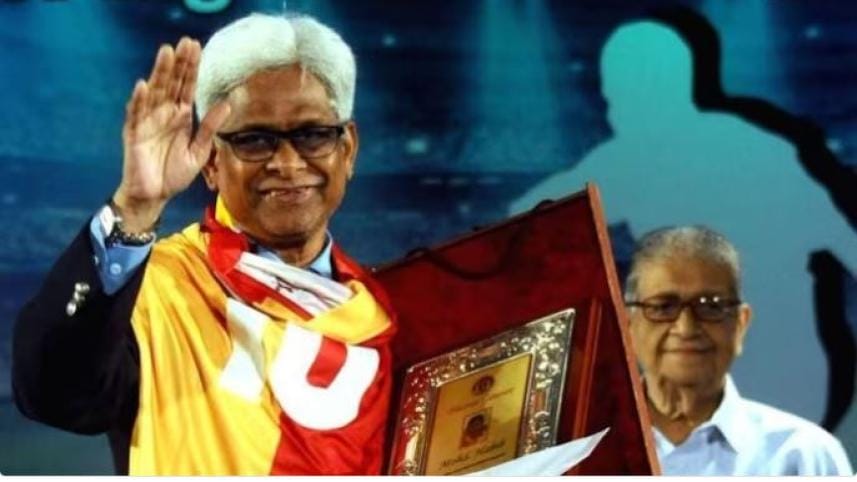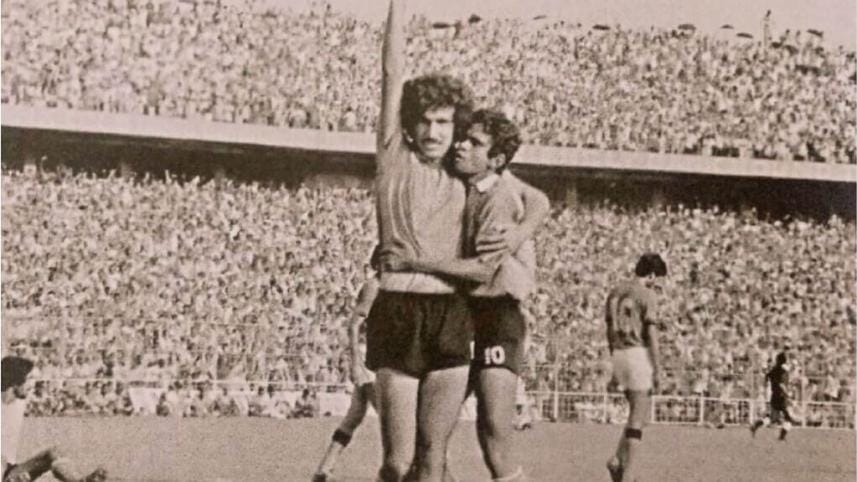Former India forward ‘Bade Miya’ Habib passes away

Former India forward Mohammad Habib passed away on Tuesday in his residence in Hyderabad after a long battle with illness.
The 'Bade Miya' of Kolkata football, as he was popularly known during his playing days, is survived by his wife and three daughters.
Born on July 17, 1949, the former India captain represented the country in 35 international matches, and scored 11 goals in the process, after making his debut against Thailand in the Merdeka Cup at Kuala Lumpur in 1967. Habib etched his name in the folklore of Indian Football in 1970, when he played an integral part in the Blue Tigers' bronze medal-winning run in the Asian Games in Bangkok, Thailand.

He further followed up by helping India become the joint winners of the Pesta Sukan Cup with South Vietnam in 1971. Habib played international football till 1975. He was conferred the Arjuna Award for his contribution to the game.
Expressing his condolences, AIFF President Mr Kalyan Chaubey said, "I am extremely saddened to hear of the passing away of Mohammed Habib. The 'Bade Miya' of Kolkata football was my coach and mentor in TFA and Mohun Bagan. His contribution to India's bronze medal-winning team in the 1970 Asian Games will be remembered forever. May his soul rest in peace."
AIFF Secretary General Dr Shaji Prabhakaran said, "Mohammed Habib was one of the finest footballers of his time, and remained dedicated to the game throughout his life. I am deeply saddened by his passing away."
On the domestic front, Habib switched over from Hyderabad to Kolkata in 1966 when he joined East Bengal. For the next 18 seasons, he played for all three top Kolkata clubs – East Bengal, Mohun Bagan and Mohammedan Sporting – with distinction and soon grew into a legend of Indian football. His grit, determination and never-say-die attitude on the field inspired his contemporaries as well as generations of footballers. He was so dedicated to the game that he rejected all job offers during his playing days to concentrate on his football. In a way, he was the country's first professional footballer.
Always considered a big-match footballer, Habib always shone when it was needed most. In the 1969 Santosh Trophy final, he scored five goals in Bengal's 6-1 win over Services, which is still a record.
He had the rare distinction of scoring the winning goals in three Durand Cup finals in the span of seven seasons for East Bengal.
For Mohun Bagan, he was the key performer when Pele's Cosmos Club played against the Green and Maroon brigade in an exhibition club in Kolkata. Habib not only scored a goal in the 2-2 draw but also earned the praise of King Pele for his impressive display at the Eden Garden that evening. Habib was one of the few players to win the Triple Crown (winning the IFA Shield, Durand Cup and Rovers Cup in the same season) for both East Bengal and Mohun Bagan in 1972 and 1977, respectively.
Habib became a successful coach once he decided to hang up his famous number 10 jersey in 1982. Having joined as the coach at Tata Football Academy in Jamshedpur, he was instrumental in producing a number of footballers, who went on to don the National Team colours. Later, he coached Mohun Bagan and Mohammedan Sporting, too.
Habib won the Santosh Trophy on five occasions – 1965 (with Andhra Pradesh), 1969, 1971, 1972, and 1975 (with Bengal). He also has the distinction of winning the Calcutta Football League 10 times (1966, 1969, 1970, 1971, 1972, 1973, 1974, 1976, 1978, 1982), the Durand Cup five times (1967, 1970, 1972, 1977, 1982), the Rovers Cup seven times (1967, 1968, 1972, 1973, 1976, 1977, 1981), the IFA Shield four times (1970, 1972, 1973, 1974), and the Federation Cup twice (1978 and 1981) with clubs like East Bengal and Mohun Bagan.



 For all latest news, follow The Daily Star's Google News channel.
For all latest news, follow The Daily Star's Google News channel.
Comments